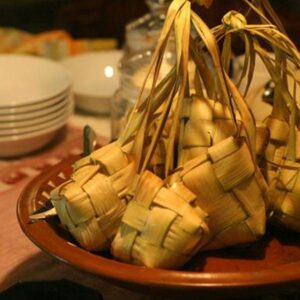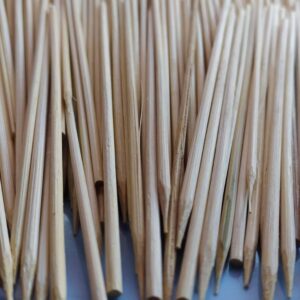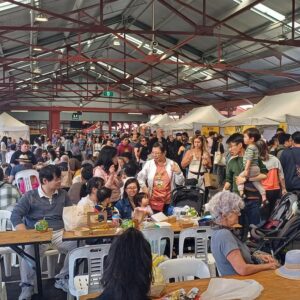Liputan6.com, Sukabumi – Smiles and laughter radiated from the faces of the students, even though they were not celebrating Eid al-Adha with their families. They enjoyed the moment by eating satay together.
One of them is at the Dzikir Al Fath Islamic Boarding School, Gunungpuyuh District, Sukabumi City. Around 1,000 students lined up from the gate to the field area holding cardboard boxes used to light charcoal fires.
Dice-shaped pieces of sacrificial meat from lamb and beef have been skewered using skewers, grilled in a charcoal stove made from banana tree trunks and roof tiles for grilling satay have been prepared 100 meters long.
When the signal was given, the students immediately shook the cardboard to burn the satai.
It is known that this method is the longest tradition of grilling satay which has been routinely carried out at the Dzikir Al Fath Islamic Boarding School every Eid al-Adha holiday for the last five years. This year, there are at least 5,000 skewers resulting from the slaughter of 11 sheep and 3 cows.
“We have prepared 5,000 skewers because there are 1,000 students, more or less students holding five skewers per person,” said the Head of the Dzikir Al Fath Islamic Boarding School, KH Fajar Laksana, Monday (17/6/2024).
He said that this activity was routinely carried out as a form of gratitude after previously carrying out the Tarwiyah and Arafah fasts, then Eid al-Adha prayers and the slaughter of sacrificial animals.
“The first meaning is that we thank Allah, after we carry out the Islamic teachings, namely the Eid al-Adha prayer and the slaughter of the sacrificial animal, before we also perform the sunnah fast,” he said.
According to him, this activity is meaningful to remember the incident when the Prophet Ibrahim AS was ordered by Allah to sacrifice his son, then Allah replaced him with a sheep or a sheep.
“Then this will be a lesson that will immediately be felt by the students, how the sacrifice of Prophet Ibrahim AS was replaced with a sheep,” he said.
Apart from that, with sacrifices, it can be a lesson to share with others, especially those in need.
“Sacrifice is part of the Islamic teachings where every strand of hair of the sacrificial animal will be recorded by Allah as a good deed and every drop of its blood can forgive the person who sacrificed,” he added.
Moreover, when the sacrificial meat is distributed to those in need, especially orphaned and poor students, they experience joy and increase their faith and piety towards Allah SWT.
Meanwhile, one of the students named Sofi (17) said he had been taking part in this activity since last year. He admitted that he was enthusiastic about this activity.
“According to Sofi, this is an interesting thing and Sofi’s experience here is something different. There’s nothing like this outside. Yes, because it was fun before there was a sheep festival. Now this continues (it is processed with satai),” he said.






